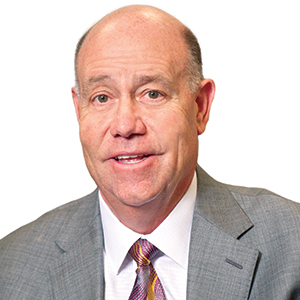As your network grows, you’ll realize that people may come to you because of your relationships. They know that while you don’t have the answer, you may know the person who does.
A business colleague who calls me about a serious heart condition is not expecting me to solve that problem but knows I have someone at the Cleveland Clinic in my network and I can guide him to a trusted contact who can help. Networking is ultimately about helping.
I often take stock of my relationships and think about how I can connect the dots. How can I make a difference for people and get results? Who can I engage to improve a situation? How can I add value to create value and make a meaningful difference in each relationship?
If you grow a network, you should use it to benefit others. Otherwise, it’s like having a nice home and never inviting guests to visit. It’s like having a grand, delicious dinner but no one to share it with. You can’t eat it all yourself. No one benefits when you stockpile relationships, money and power.
I have fallen short with networking countless times. I have learned the hard way the opportunity cost of not leveraging possible connections. For example, I delivered a keynote speech to 600 financial professionals. I gave the talk, then returned to my office to take care of business before I attended an event scheduled for later that evening. I didn’t stick around after the keynote to talk with the audience, and I neglected to ask the organizer for a roster of who was in the audience so I could connect the dots later. I missed an opportunity.
There have been plenty of other times where, after the fact, I realized that I did not follow up as I should have. If you take the time and spend the energy to meet with others, then take the extra step to build relationships that might benefit you and others. Often the errors of omission are worse than the errors of commission.
So, how do you begin to connect the dots and engage others — to share the networking wealth? I might start a conversation like this: “What challenges are you experiencing?” I ask others about their lives and businesses, and I respond, “Let me see if I can help you.” I reflect, my mind flipping through a mental Rolodex of people I know, like and trust.
I like to share information, including my reading. I dedicate about four hours every morning to reading on a range of topics that I want to pursue. I maintain a list of subjects I’d like to learn more about and go after that information in my quest for continuous learning. I’ll never finish studying, which keeps me engaged and makes me a more valuable resource for others.
I’ve found that making a commitment to lifelong learning is essential. I share the information I read with others. Sometimes I compile reports that explain the takeaways I found valuable. Other times, I suggest a book, article, or video I thought was particularly impactful. I’m giving, and that’s integral to maintaining a network. You must always give — and then give more.
Networking is one of the ways in which we built a highly successful insurance and risk advisory firm. Our knowledge and expertise are why clients depend on us. Our team of specialists lets us strive be the best in everything we do. Not because one person — the CEO — has the answers, but because we are a valuable network and we focus on helping first. ●
Umberto P. Fedeli is CEO of The Fedeli Group

